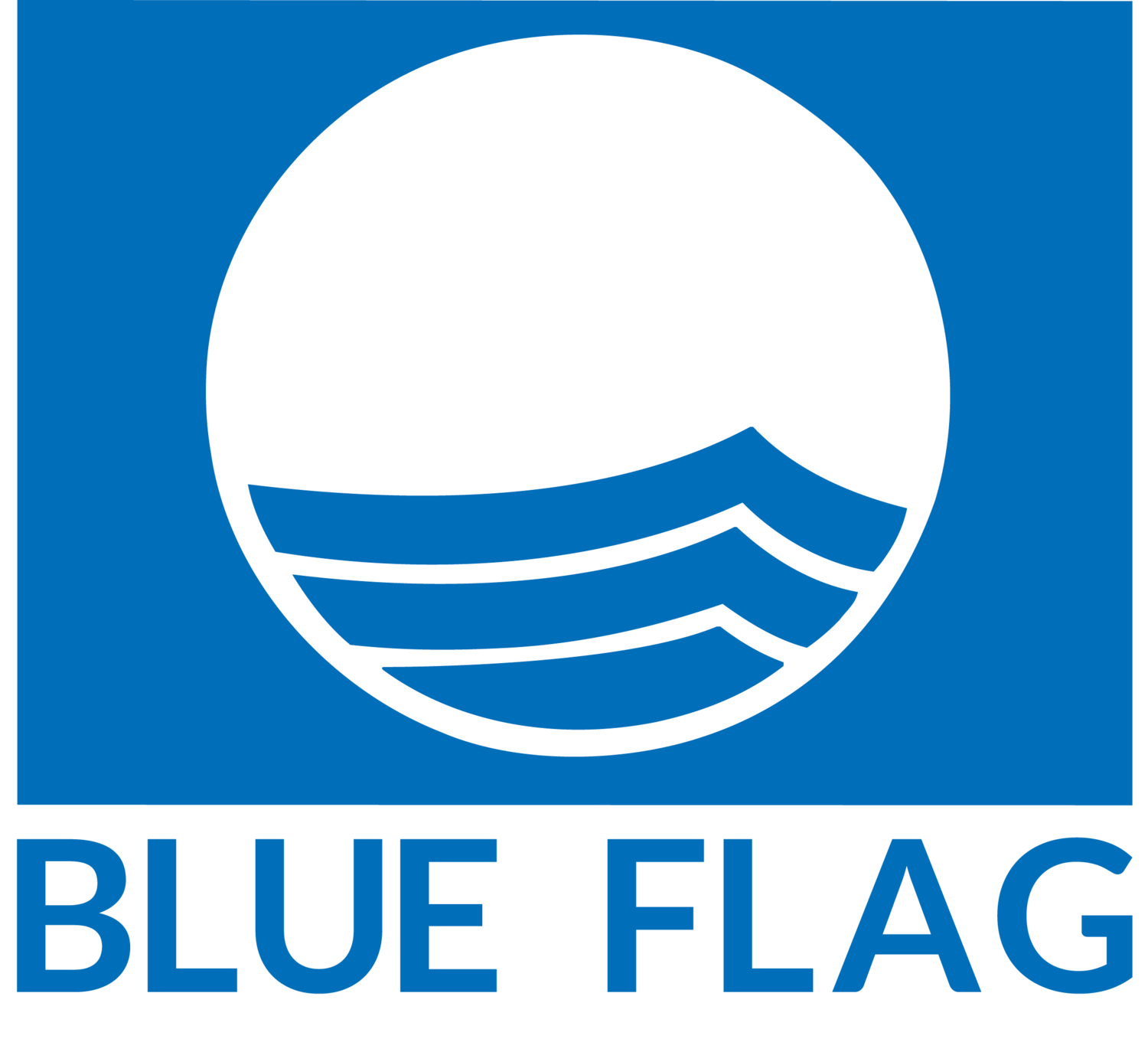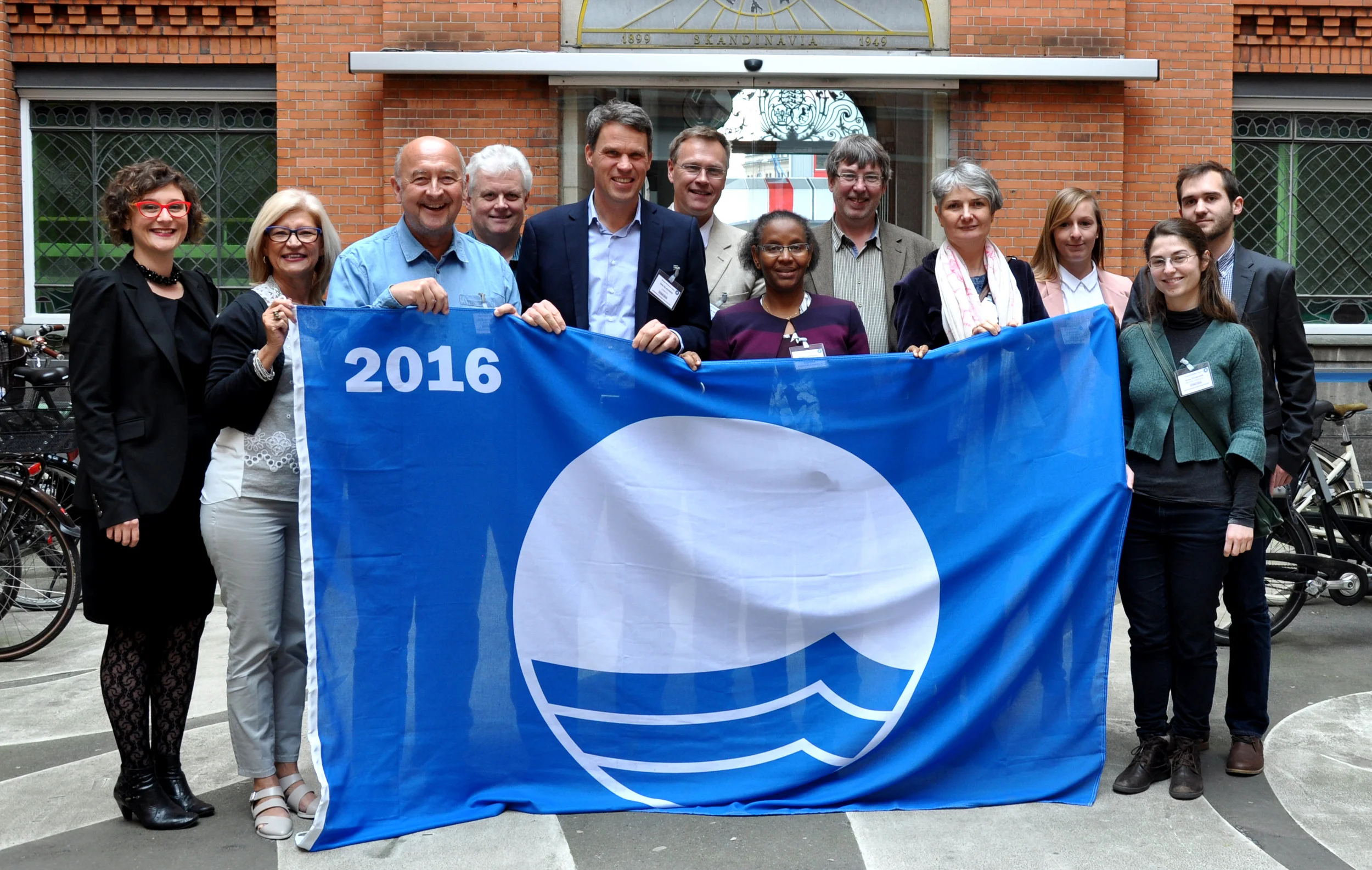More than 4000 sites were awarded the world’s leading eco-label for the 2016 season by the Blue Flag International Jury on 13th April in Copenhagen, Denmark.
The International Jury meeting was hosted by the European Environment Agency, in Copenhagen, for the first time ever. This event goes hand in hand with the 40th anniversary of the European Bathing Water Directive. Indeed, in the eighties and nineties, the Blue Flag was supported by the EU as a tool to implement the Bathing Water Directive throughout European countries. Nowadays, Blue Flag is still ensuring all its sites possess excellent Bathing Water Quality, not only in Europe, but all around the world.
This first Blue Flag International Jury meeting of 2016 has seen new milestones coming to reality in the Blue Flag scheme. After more than three years of designing and pilot-testing a new set of criteria for Sustainable Boating Tourism Operators, the very first operators have been awarded the Blue Flag after a long period of work towards achieving the strict criteria in environmental education, safety, social responsibility, and environmental management. The International Jury is very impressed by the dedication of these operators and look forward to welcoming many others to apply soon to the Blue Flag to create more sustainable boating operations. These awarded boats offer specific types of activities from whale-watching to diving and more, and each comply with the relevant set of criteria.
“Oil and chemical spills, sewage and other manmade marine pollution and debris can have terrible effects on the marine environment, including coral reefs, whales and dolphin, which are some of the main tourist attractions nowadays. Equally, discharge of untreated wastewater, poorly maintained sanitary waste systems aboard boats and/or unloading of solid waste overboard impact the marine environment” says– Dr Birguy Lamizana, GPA, Coordinator Acting, United Nations Environmental Programme (UNEP) “Thus, boating activities, as exciting as they are, need to give due attention to those issues to avoid any side effects. Who wants to pay to dive if it is only to come across bleached coral reefs? This is the reason why, the GPA (Global Programme of Action for the protection of marine environment from land based activities), is working to address these issues through its three Global partnerships, on wastewater, on nutrients and on marine litter[1]. By raising awareness on environmental education and responsible tourism, the Blue Flag is an important ally, as it helps protect and sustain the marine environment,” she concludes.
This year, Blue Flag also marks a second milestone by expanding to the Asian region. The first two beaches to fly the award in Asia, are on the coastlines of Japan. This is the result of four years of hard work from FEE Japan and the municipalities who came on board.
To celebrate these very important milestones, and to support Greece in this difficult period, the Blue Flag international results will be announced, for the first time ever, at a major event on May 25th. This event will be held in Chalkidiki, Greece, at the Porto Carras Grand Resort, and organised by the Hellenic Society for the Protection of Nature, (HSPN) a valued member of the Foundation for Environmental Education (FEE) since 1992.
The 2016 Blue Flag awards results will presented by Lesley Jones, FEE Vice-President, and Sophie Bachet Granados, Blue Flag International Director.
HSPN President, Dr. Nikos Petrou, stated: “FEE has established the Blue Flag as the foremost eco-label throughout the world and continues to promote its vision for sustainable coastal management and responsible tourism through education around the globe. HSPN, also committed to environmental education and sustainable management of the environment since its founding 65 years ago, is proud to host the first ever open announcement of the international results. In close cooperation with our colleagues at FEE, we strive to expand the programme as a means to safeguard our fragile coastal environment, both as a precious resource for future generations and as an invaluable tool for our tourism industry”.
After the event, the full list of awarded sites will be published on the international Blue Flag website. Users can visit the new Blue Flag website and its new maps and search systems. There is detailed information about the business season, the services or facilities for disabled people, and lots more at each awarded site.
The next meeting of the Blue Flag International Jury will take place in September to award beaches, marinas and sustainable boating tourism operators’ boats from the Caribbean, South America, Africa and southwest Pacific.
The International Blue Flag Jury is composed of representatives from the United Nations Environment Programme (UNEP), the United Nations World Tourism Organization (UNWTO), International Lifesaving Federation (ILS), the European Environment Agency (EEA), the European Union for Coastal Conservation (EUCC), the International Union for Conservation of Nature (IUCN), an Environmental Education expert, the International Council of Marine Industry Associations (ICOMIA) and FEE. You can find out more about them on Blue Flag’s website.
The Blue Flag greatly appreciates the support of its sponsor and flag producer, Semaphore.
[1] Global Wastewater Initiative (GW2I), Global Partnership on Nutrient Management (GPNM) and Global Partnership of Marine Litter (GPML).


